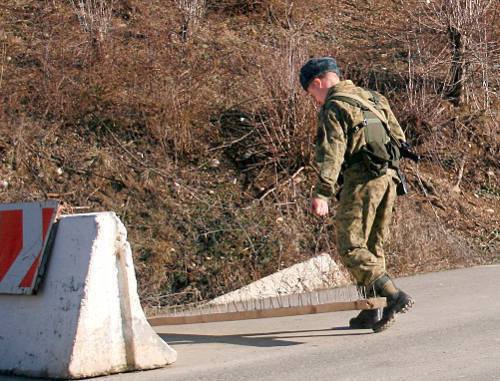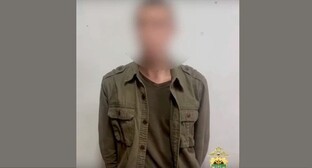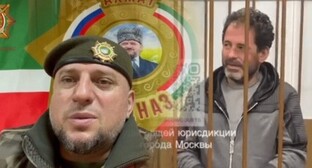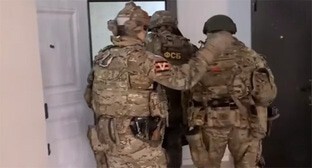
09 November 2011, 22:40
GARB: detentions on South-Ossetian-Georgian border stands out of other problems of conflict regions
The main topic discussed on November 8 in Gori at the meeting organized by the NGO named GARB (Georgian Association of Regional Broadcasters) was the issue of detention of the persons who cross the border of Georgia with South Ossetia.
The meeting was attended by NGO activists, media professionals, state officials and residents of the region of Shida Kartli, who live in close proximity to the border with South Ossetia.
Let us remind you that it was planned to send the report about the meeting to the parties interested in human rights issues in South Ossetia, and to local and international NGOs and governmental organizations.
"We are running the project named 'Polygon', under which we collect information about how human rights are observed in conflict regions; we are interested in observance of basic human rights: the right to life and freedom, and to the freedom of travel. Unfortunately, in conflict areas we often see cases of deprivation of liberty and other human rights violations. Today we decided to discuss the measures to be taken to prevent further violations," Tatiya Kuprashvili, Chair of the GARB, told the "Caucasian Knot" correspondent.
"Unfortunately, we were unable to establish working relationships with journalists from South Ossetia; therefore, we receive information from there only after questioning those who were detained in the breakaway republic and later released. That is, our employees interview them already on this side of the border," said Tatiya Kuprashvili.
She reported that during the meeting on November 8 they mainly discussed detentions of civilians who cross the border between the Gori District of Georgia and South Ossetia.
"This problem has become a daily one for the locals: almost every week individuals or group of persons are detained on charges of illegal border crossing," said Ms Kuprashvili.
One of the guests invited to the meeting in Gori - Giorgi Aptsiauri, the Gori own correspondent of the Radio "Tavisupleba" (the Georgian Service of the Radio Free Europe/Radio Liberty) - has also noted that the major human rights violations in South Ossetia are associated with detentions and arrests of people trying to cross the border between the unrecognized republic and the Gori District of Georgia.
"The biggest problem is that Russian border guards often change the demarcation line," said Giorgi Aptsiauri.
Currently, Georgia raises the issue of return of 6 persons who had been arrested in the territory of South Ossetia on charges of illegal border crossing. Most often, detentions of residents of the Gori District are made by Russian border guards on duty at the border on the side of South Ossetia.
"Fortunately, I should note that recently there are no complaints that the detained or convicted Gori residents are beaten or tortured in the Tskhinvali prison: this is not the case indeed. There are, however, evidences that at detention border guards use force and beat people as punishment, as they say, for Georgians daring to hunt or gather firewood in the territory of South Ossetia," said Tatiya Kuprashvili.
As one of the measures to prevent detentions of Gori residents, the meeting suggested a more active informing the population about the location of the demarcation line through joint efforts of local authorities, NGOs and mass media.
However, according to Mr Aptsiauri, even detailed informing is no guarantee that crossings of the demarcation line will be prevented. He stressed that very often the demarcation line was crossing the farmland of local residents, so that the family, which had long handled its field or garden, could not get there otherwise than under threat of detention and arrest by law enforcement authorities of South Ossetia or Russian border guards.
Kakha Toliashvili, an official from the Gori Municipality, who attended the meeting organized by the GARB, stated explicitly that Georgian officials cannot influence the passing regime across the border set up by the authorities of Tskhinvali and Russian border guards.
"The Georgian party tries to avoid confrontation and bloodshed. What can we do? Russians would not hear, understand or compromise; they taboo all these subjects; while the Ossetian party as a whole depends on the position of Russia. We hope that the efforts of the international community will bring fruit, and Russia will gradually give way," said Kakha Tatiashvili, as quoted by the Radio "Echo of the Caucasus".
"The memorandum of Thomas Hammarberg, which was signed last April by Georgia, South Ossetia and Russia, assumed that the people who had crossed the border with South Ossetia should not be detained if they crossed the demarcation line by negligence or without any malice," said Giorgi Aptsiauri.
However, as noted by Georgian journalists and civil activists, the indulgence mechanism is applied selectively.
"For example, a person who was simply chopping wood was arrested and immediately released after the Georgian party presented the necessary documents on his identity. While the other one, Vasil Kobakhidze, was sentenced to 1.5 years in prison just for having visited the church located near his home but on the other side of the demarcation line. Thus, as we see, the provision of relief treatment of the persons crossing the border without malice," said Aptsiauri.
According to the participants of the meeting, there is the only communication line between Georgia and South Ossetia - the "hotline" of the European observation mission. If necessary, the Georgian police and the militia of South Ossetia use this hotline to contact European observers and inform them about detention of this or that person. Then, the observers act as intermediaries at negotiations. Only during the meetings within the incident prevention mechanism in the conflict zone, officials of South Ossetia and Georgia can contact directly.
According to Giorgi Aptsiauri, the attention of Georgian mass media is required to solve the issue of border-crossing. "Unfortunately, central TV channels don't pay enough attention to this problem."
Author: Beslan Kmuzov Source: CK correspondent




